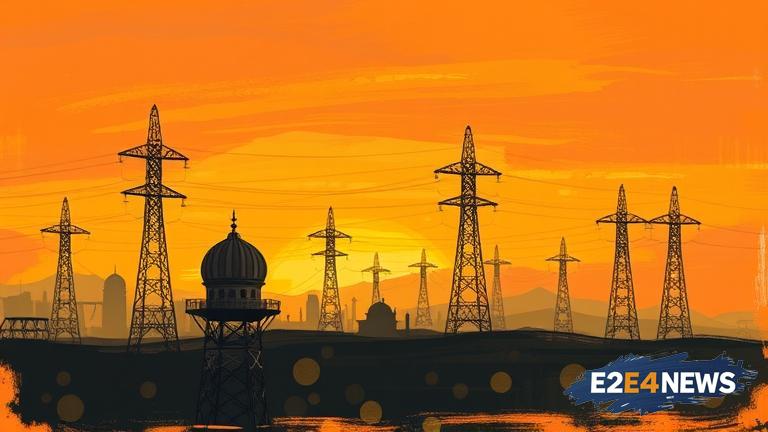The Economic Coordination Committee (ECC) of Pakistan has approved the passing of captive power levy benefit to consumers, a move that is expected to reduce electricity costs for industries and households. The decision was made in a recent meeting, where the ECC considered the proposal to pass on the benefit of captive power levy to the consumers. The captive power levy is a charge imposed on industries that generate their own electricity, and the benefit of this levy will now be passed on to the consumers. This move is expected to provide relief to the industries and households that are struggling with high electricity costs. The ECC has directed the Ministry of Energy to implement the decision and ensure that the benefit of the captive power levy is passed on to the consumers. The decision is also expected to promote the use of captive power generation, which will help reduce the burden on the national grid. The ECC has also approved the proposal to reduce the electricity tariff for the industries, which will help increase their competitiveness in the global market. The reduction in electricity tariff will also help reduce the cost of production for the industries, which will ultimately benefit the consumers. The ECC has also considered the proposal to introduce a new electricity tariff for the commercial and industrial consumers, which will be based on their peak and off-peak consumption. The new tariff will help reduce the burden on the national grid during peak hours and promote the use of electricity during off-peak hours. The ECC has also approved the proposal to provide a subsidy to the low-income households, which will help them pay their electricity bills. The subsidy will be provided through the Benazir Income Support Program (BISP), which is a government-funded program that provides financial assistance to the low-income households. The ECC has also considered the proposal to increase the electricity generation capacity of the country, which will help meet the growing demand for electricity. The proposal includes the construction of new power plants, which will be fueled by coal, gas, and renewable energy sources. The ECC has also approved the proposal to improve the transmission and distribution system of the country, which will help reduce the losses and improve the efficiency of the system. The proposal includes the construction of new transmission lines and the upgrade of the existing distribution system. The ECC has also considered the proposal to promote the use of renewable energy sources, such as solar and wind power, which will help reduce the dependence on fossil fuels and mitigate the impact of climate change. The proposal includes the provision of incentives to the investors who invest in renewable energy projects. The ECC has also approved the proposal to establish a regulatory framework for the renewable energy sector, which will help promote the use of renewable energy sources and ensure the stability of the grid. The regulatory framework will include the establishment of a renewable energy authority, which will be responsible for promoting and regulating the use of renewable energy sources. The ECC has also considered the proposal to provide training and capacity-building programs for the professionals working in the energy sector, which will help improve their skills and knowledge. The proposal includes the provision of training programs for the engineers, technicians, and other professionals working in the energy sector. The ECC has also approved the proposal to establish a research and development center for the energy sector, which will help promote the use of new and innovative technologies in the sector. The research and development center will be responsible for conducting research and development activities in the energy sector and providing technical assistance to the industries and households. The ECC has also considered the proposal to promote the use of energy-efficient appliances and devices, which will help reduce the consumption of electricity and mitigate the impact of climate change. The proposal includes the provision of incentives to the manufacturers and consumers who use energy-efficient appliances and devices.
